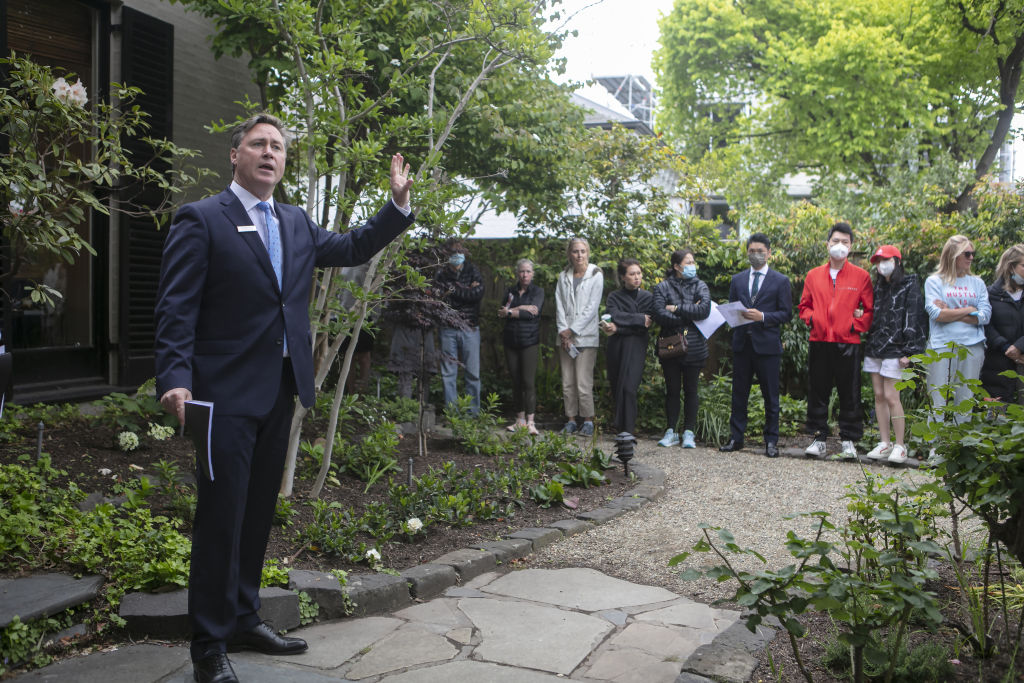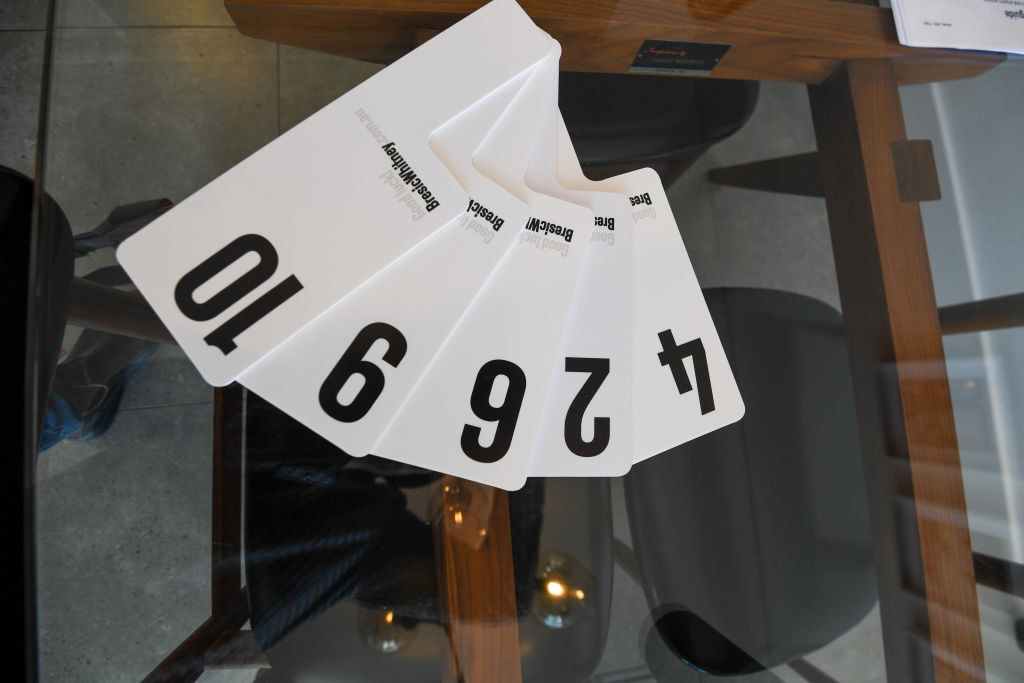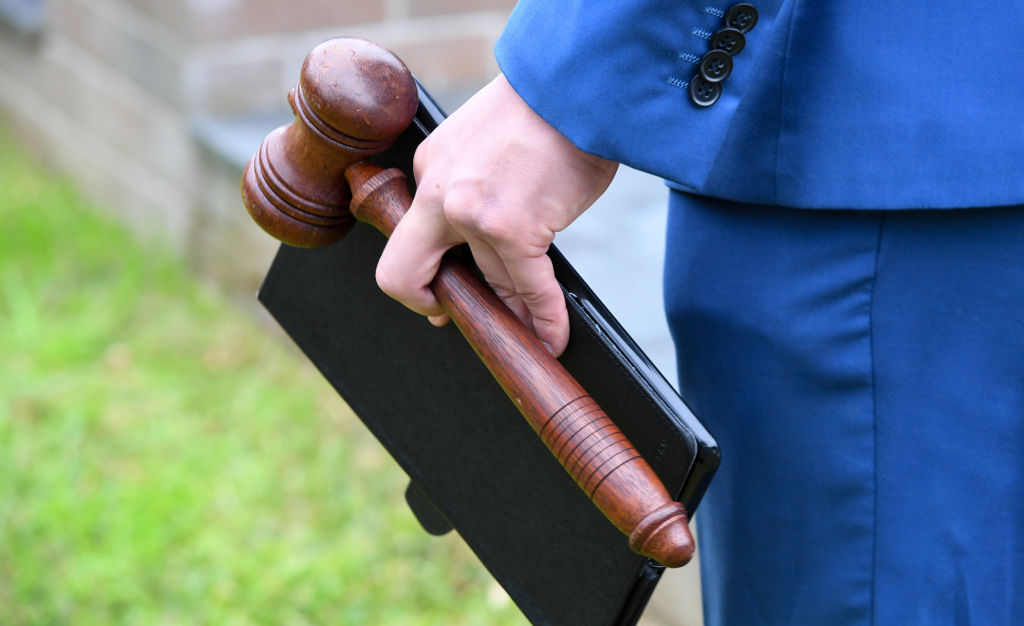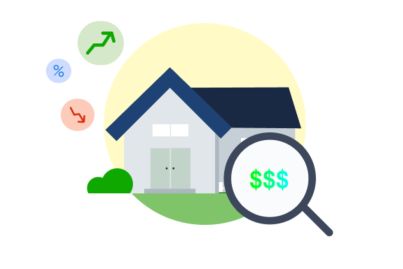Are you a local auction stickybeak? Here’s how that can put you ahead
Watching live sports can fill you with adrenaline, but observing a high-energy local auction can be just as thrilling as an AFL final.
However, regardless of the entertainment factor, there are many other reasons why having a stickybeak at your neighbour’s auction is a good idea.
An online survey from Domain reveals that 77 per cent of Australian adults have attended auctions of homes in their neighbourhood with no intention of buying them to understand what their house might be worth.
The survey respondents were all Australian residents aged 18 and over who had sold or purchased a property in the past 12 months. Others were currently in the market.
Domain chief of research and economics Dr Nicola Powell says plenty of factors draw people to attend neighbouring auctions.
“Sometimes it’s because someone is interested in buying again in the area,” she says.
“If you are a neighbour having a stickybeak, maybe you are thinking about selling, but you may also be thinking about what the value of your home is, which is very important to understand.”
But is attending your neighbours’ auctions actually a good way to assess the likely cost of your home?

Powell says neighbouring auctions can provide insight into the market and a close gauge of what your home might sell for.
“It’s timely information because it’s happening right in front of you, and I think it tells you a variety of things about the market because if you’re attending an auction in person, you can see how many people are competing for the home,” she says.
“What that means is, it’s giving you an understanding of what the buyer depth is out there … if there are lots of bidders at the auction, it says a lot about the heated conditions and also gives you an indication of pricing immediately.”
Patrick Ivey of Harcourts Property Centre says he finds those who are attending neighbouring auctions tend to own similar properties.
“Homes on sought-after streets in a good suburb or a quiet backstreet, owners of recently renovated homes if there are other recently renovated homes on the street … we find those owner-occupiers coming through,” he says.
It can also be an excellent way to step into the market and develop an understanding of how the auction process works for people who aren’t looking to sell immediately, Alex Pattaro of Ray White New South Wales & ACT says.

“There are a lot of Australians who, aside from watching The Block, have never attended an auction before. It can give great insights on how auctions are actually conducted,” he says.
While it can be a good indicator of your home’s price, certain nuances may make a neighbouring property sell for more or less, than your home.
Ivey says it can be something as marginal as them having marble benchtops in a kitchen while you do not.
“Floor plans are also really big ones; if you’ve got a kitchen that is upstairs while they’ve got a kitchen that is down, there will likely be a difference in pricing,” he says.
“Things like block sizes and attributes of the home, houses on bigger blocks will sell for more, so that will also make a difference in pricing.”
Situational differences can also result in price variation between neighbouring homes, Pattaro explains.
“If you have two buyers, for example, who fall in love with the home and have an emotional connection to it, the sky’s the limit on what they will pay depending on their budgets, and therefore, if there aren’t multiple buyers with that similar passion at another home, the price might not reach the same values,” he says.
“Certain types of properties will appeal to certain types of people, and certain types of people with different budgets will end up paying different prices for these homes that may be right next to each other.”

Despite all of this, Powell says she recommends attending local auctions for your own benefit.
“There is no better pulse check of the potential value of your house by seeing what your neighbour sold theirs for,” she says.
Ivey says it is a great way for owner-occupiers to revisit the market and see where their house price may sit after living in it for decades.
However, Pattaro adds there are other ways to get an understanding of what your home may sell for.
“Relevant sales are the easiest way to determine the value of your home, not just taking the estimate you see online,” he says.
“What are other similar properties, not just next door, selling for? Then understand what other factors could push it over the line even further.”


We recommend
We thought you might like
States
Capital Cities
Capital Cities - Rentals
Popular Areas
Allhomes
More










